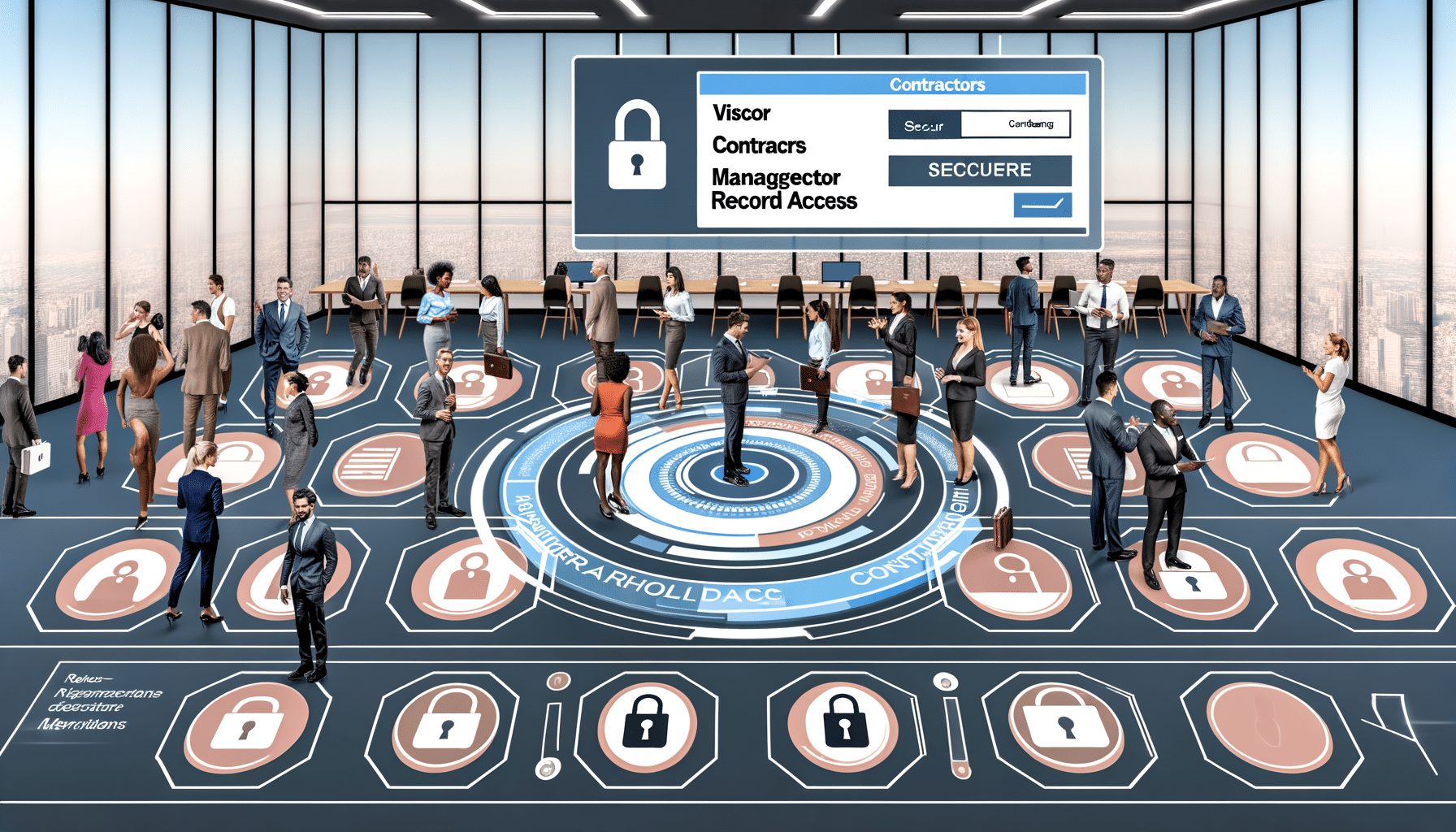- Archive Security
- November 16, 2024
Solving Stakeholder Record Access Control

Today, access control is more than just a security measure; it’s a cornerstone of effective record management. In the rapidly evolving landscape of digital records, stakeholder access and control have emerged as pivotal challenges that need robust solutions. I have discovered through my journey as the founder of RecordsKeeper.AI that implementing secure stakeholder access requires a marriage of technology and policy that is both innovative and practical.
Why Stakeholder Access Control Matters
Whether you are a legal, finance, or compliance head, ensuring the right stakeholders have access to appropriate records is crucial. The corollary is equally true; unauthorized access to sensitive records can lead to compliance breaches, financial loss, and tarnished reputations.
Here’s where technology comes into play. Providing secure access control mechanisms not only protects your data but also ensures that productivity is not hampered by obstructive security measures.
Empowering Stakeholders Through Blockchain
One of the solutions I advocate is leveraging blockchain technology to enhance stakeholder access control. Blockchain offers an immutable and transparent method for documenting access permissions. Each transaction is securely recorded and visible, making it particularly useful for creating auditable trails.
- Immutable Records: Once written, data on the blockchain cannot be altered, ensuring data integrity.
- Auditable Trails: You can track who accessed what, when, and from where.
- Smart Contracts: Automated, secure execution of transactions without human intervention.
These features eliminate any ambiguity, allowing you to offer regulated access control to stakeholders without compromising on security.
Customizing Access Control for Stakeholder Needs
In order to implement effective stakeholder access control, one size doesn’t fit all. Customization is crucial to meet the unique requirements of different stakeholders:
- Define Clear Roles: Start by categorizing stakeholders based on their roles and responsibilities.
- Granular Access Levels: Ensure each role has access only to necessary records. For instance, finance managers may need full financial records, while auditors might only need access to audit logs.
- Regular Reviews: Conduct regular access reviews to ensure compliance and security.
These steps, though straightforward, serve as the foundation for creating a secure and efficient access control system tailored to your organizational needs.
Aligning Compliance with Stakeholder Access
Regulatory compliance is another domain where stakeholder access control plays a crucial role. Whether dealing with GDPR, HIPAA, or any other standard, stringent access management ensures that your organization remains compliant by design.
Automating compliance processes with platforms like RecordsKeeper.AI can significantly enhance your organization’s ability to follow through on regulatory responsibilities without added manual burden. Our software automates typical regulatory workflows, ensuring adherence to industry standards while managing stakeholder access efficiently.
Real-time Access Monitoring
Another dimension to effective stakeholder access control is real-time monitoring. Instant alerts for unauthorized access attempts, and periodic reports showcasing access activities offer a proactive approach to managing threats.
By incorporating AI-based monitoring tools into your strategy, you gain valuable insights and can make data-driven decisions when refining access policies. Quick intervention mechanisms help mitigate data mishandling even before it becomes a larger issue.
Seamless Integration with Existing Systems
You might be wondering about the practicality of what I’ve outlined above. That’s where seamless integration comes into play. RecordsKeeper.AI does not exist in isolation but rather harmonizes with existing systems within the enterprise to amplify the security framework without disrupting workflow.
By integrating with current infrastructure, your organization can adopt new security measures with minimal operational disruption.
Conclusion: A Call For Secure Innovation
As I reflect on my journey, the two words that best encapsulate the future of record access control are security and innovation. Immense progress awaits those willing to blend cutting-edge technology with traditional policies. Effective stakeholder access control not only fortifies your security framework but also empowers stakeholders by providing access suited to their needs.
For more insights on blending innovation with strategic security measures, continue exploring the solutions offered by RecordsKeeper.AI. Let’s embark on a journey towards making stakeholder access control an advantage rather than a challenge. Stay tuned for more guidance on how to modernize your record management practices.
Toshendra Sharma is the visionary founder and CEO of RecordsKeeper.AI, spearheading the fusion of AI and blockchain to redefine enterprise record management. With a groundbreaking approach to solving complex business challenges, Toshendra combines deep expertise in blockchain and artificial intelligence with an acute understanding of enterprise compliance and security needs.
Related Posts


Handling Sensitive Records in Open Offices
Maintaining confidentiality in open workspace layouts.
- December 9, 2024
Archives
- January 2025
- December 2024
- November 2024
- October 2024
- September 2024
- August 2024
- July 2024
- June 2024
- May 2024
- April 2024
- March 2024
- February 2024
- January 2024
- December 2023
- November 2023
- October 2023
- September 2023
- August 2023
- July 2023
- June 2023
- May 2023
- April 2023
- March 2023
- February 2023
- January 2023
- December 2022
- November 2022
- October 2022
- September 2022
Want to get more content like this?
Signup to directly get this type of content to your inbox!!
Latest Post
Document Control for Equipment Maintenance
- January 20, 2025
Managing Records for Multiple Clients
- January 19, 2025
Handling Conference Documentation
- January 18, 2025
Setting Up Department Record Reviews
- January 17, 2025





